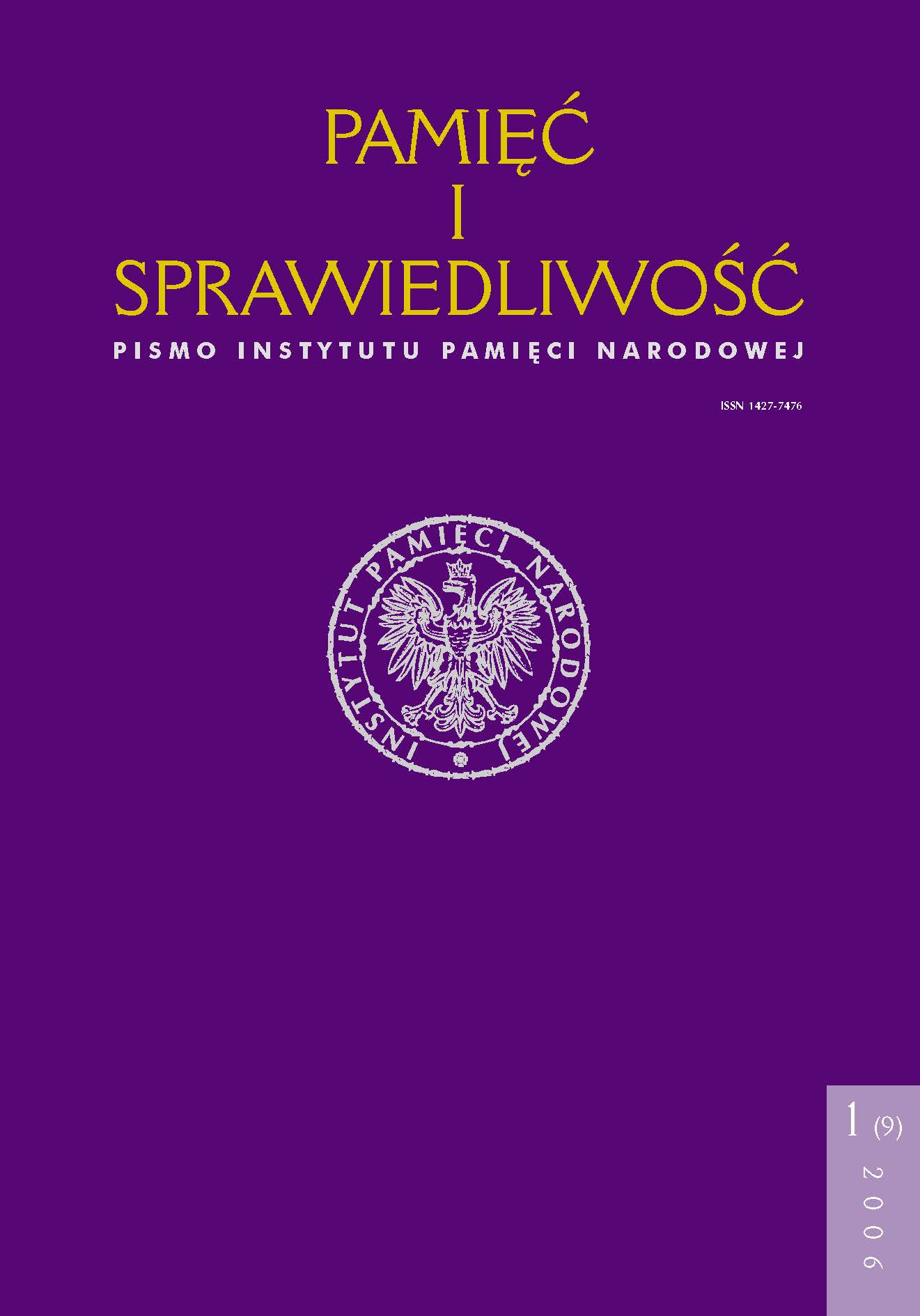Polityka interwencji SED. Prascy reformatorzy komunistyczni z 1968 roku i polski ruch demokratyczny z lat 1980–1981
Pamięć i Sprawiedliwość, Tom 9 Nr 1 (2006), strony: 63-91
Data publikacji: 2006-06-30
Abstrakt
In 1968 the main difference between SED (Socialist Unity Party of Germany) and KPCz (the Communist Party of Czechoslovakia) was different understanding of roots of totalitarian authorities in the countries. The Czechoslovakian communists were sure that they owe their power not only to the victory of the Red Army, but also to the society support, which they were given in free elections. The German communists, on the other hand, were quite conscious that they were given power in GDR only by the Soviet Union. In 1968 SED did not want to and could not agree for the reforms of the Prague Spring. The
German communists’ party acted with the aggression of the vassal state and according to their specific situation, as the existence of GDR depended on the protection of the soviet leader. The Czech communists were undertaking activities to reform their own society for the monopoly of power of the “monopoly bureaucracy”. The crisis in Poland in 1980–
–1981 was of a different kind – it was the expression of society emancipation which aimed not at the reform, but at the abolition of the communist rule. The SED leaders were conscious of his difference and understood, that Polish opposition after the Gdaƒsk agreement was aspiring to changing the political system in Poland. The German communist party was demanding the Polish government took definite counteractions against the “counterrevolution” danger and was determined to aid to the communist rule in Poland by all possible
means, which included also armed intervention, according to the Brezhnev doctrine. The GDR army actively took part in preparations for widely planned maneuvers in Poland, in which also Soviet and Czechoslovakian armies were to participate. The Soviet leadership did not decide for intervention in Poland, which restricted SED activities, but
did not reduce their eagerness to do with the Polish conflict using armed forces. When five countries of the Warsaw Treaty intervened in Czechoslovakia, SED in official propaganda created the impression that the army of East Germany took part in occupying Czechoslovakia.
Nowadays it is known that its regular combat units were not introduced there.
 Język Polski
Język Polski
 English
English
 Deutsch
Deutsch
 Français (France)
Français (France)
 Italiano
Italiano
 Русский
Русский


 PDF
PDF
